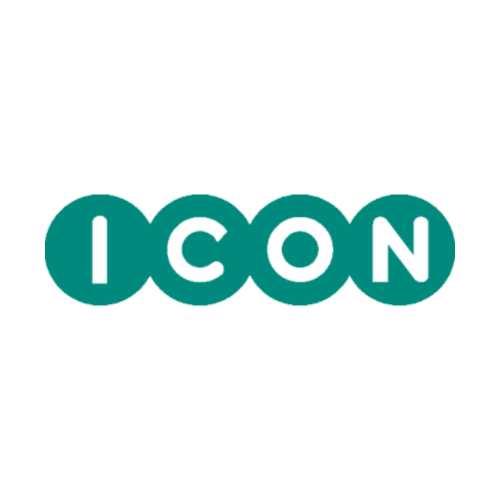The Role of Regulatory Affairs in Clinical Research

Introduction to Regulatory Affairs in Clinical Research
Regulatory affairs play a pivotal role in ensuring the safety, efficacy, and quality of pharmaceutical products and medical devices.
In the field of clinical research, regulatory affairs professionals are at the forefront of ensuring compliance with the laws and regulations set forth by regulatory agencies such as the FDA (Food and Drug Administration), EMA (European Medicines Agency), MHRA (Medicines and Healthcare products Regulatory Agency), and PMDA (Pharmaceuticals and Medical Devices Agency). Their expertise is essential in navigating the complex landscape of clinical trials and ensuring that research studies meet the necessary regulatory requirements.
Importance of regulatory affairs in clinical research
The importance of regulatory affairs in clinical research cannot be overstated. These professionals are responsible for ensuring that clinical trials adhere to strict regulatory guidelines, which are in place to protect the rights and welfare of study participants. Regulatory affairs professionals work closely with researchers, sponsors, and regulatory agencies to ensure that all necessary approvals and documentation are in place before a clinical trial can begin. They are also responsible for monitoring ongoing trials to ensure compliance with regulatory requirements and for reporting any adverse events or safety concerns to the appropriate regulatory authorities.
Furthermore, regulatory affairs professionals play a crucial role in the post-approval phase of clinical research. They are responsible for submitting regulatory filings and maintaining compliance with regulatory requirements throughout the lifecycle of a product. This includes ensuring that any changes to the product, such as formulation updates or manufacturing process changes, are properly documented and approved by the regulatory authorities.
Without the expertise of regulatory affairs professionals, the entire process of bringing a new drug or medical device to market would be fraught with risk and uncertainty.

Roles and responsibilities of regulatory affairs professionals
Regulatory affairs professionals have a wide range of roles and responsibilities in clinical research. They are responsible for interpreting and implementing regulations, guidelines, and policies related to clinical trials. This includes staying up to date with the latest developments in regulatory requirements and ensuring that all stakeholders are aware of their obligations. They are also responsible for preparing and submitting regulatory submissions, including investigational new drug applications (INDs) and marketing authorization applications (MAAs), and for coordinating with regulatory agencies throughout the review and approval process.
In addition, regulatory affairs professionals are responsible for maintaining compliance with regulatory requirements throughout the lifecycle of a product. This includes ensuring that all documentation, such as clinical trial protocols, informed consent forms, and case report forms, are complete and accurate. They are also responsible for monitoring ongoing trials to ensure that they are conducted in accordance with the approved protocols and that any deviations or safety concerns are properly addressed.
Regulatory agencies in clinical research - FDA, EMA, MHRA, PMDA
Regulatory agencies play a crucial role in overseeing and regulating clinical research activities. These agencies are responsible for ensuring the safety and efficacy of drugs and medical interventions before they are approved for use in the general population. Some of the major regulatory agencies involved in clinical research include the Food and Drug Administration (FDA) in the United States, the European Medicines Agency (EMA) in Europe, the Medicines and Healthcare products Regulatory Agency (MHRA) in the United Kingdom, and the Pharmaceuticals and Medical Devices Agency (PMDA) in Japan.
The FDA is perhaps the most well-known regulatory agency in the world. It is responsible for regulating drugs, biologics, medical devices, and food products in the United States. The FDA sets rigorous standards for clinical trial design, data collection, and analysis, and reviews all applications for new drug approvals. The agency also conducts inspections and audits to ensure compliance with regulatory requirements.
In Europe, the EMA is the regulatory agency responsible for the evaluation and supervision of medicinal products. It plays a key role in the approval process for new drugs and provides scientific advice to pharmaceutical companies. The EMA collaborates closely with national regulatory agencies in European Union member states to ensure consistent standards and regulatory oversight across the region.
The MHRA is the regulatory agency responsible for ensuring the safety, quality, and efficacy of medicines in the United Kingdom. It assesses the safety and regulatory compliance of clinical trials conducted in the UK and provides guidance and support to researchers and sponsors.
In Japan, the PMDA is the regulatory agency responsible for the evaluation and approval of pharmaceuticals and medical devices. It works closely with the Ministry of Health, Labour, and Welfare to ensure the safety and efficacy of drugs and medical interventions.
These regulatory agencies play a critical role in safeguarding the interests of study participants and the general public by ensuring that clinical trials are conducted in compliance with applicable regulations and guidelines. Their oversight and review processes are essential for the approval and commercialization of new drugs and medical interventions.
Regulatory requirements for clinical trials
Clinical trials are subject to a wide range of regulatory requirements to ensure the safety and well-being of study participants. These requirements vary depending on the country or region in which the trial is being conducted. In general, regulatory requirements for clinical trials include obtaining ethical approval from an institutional review board (IRB) or ethics committee, obtaining regulatory approval from the appropriate regulatory agency, and adhering to Good Clinical Practice (GCP) guidelines.
Ethical approval is obtained by submitting a detailed study protocol and informed consent form to an IRB or ethics committee. The IRB or ethics committee reviews the protocol to ensure that the study is scientifically valid and that the rights and welfare of study participants are protected. Regulatory approval is obtained by submitting a regulatory submission, such as an IND or MAA, to the appropriate regulatory agency. The regulatory agency reviews the submission to ensure that the study meets the necessary regulatory requirements.
Good Clinical Practice guidelines provide a set of internationally recognized standards for the design, conduct, recording, and reporting of clinical trials. These guidelines ensure that the data collected from clinical trials is reliable and can be used to support regulatory decisions. Compliance with GCP guidelines is essential for regulatory approval and for ensuring the integrity of the clinical trial data.
Regulatory submissions and approvals
Regulatory submissions and approvals are a critical part of the clinical research process. These submissions and approvals are necessary for initiating a clinical trial, obtaining regulatory clearance to market a new product, and maintaining compliance throughout the product lifecycle.
In the pre-approval phase, regulatory affairs professionals are responsible for preparing and submitting regulatory submissions to the appropriate regulatory agency. These submissions include detailed information about the study protocol, the investigational product, and the safety and efficacy data obtained from preclinical and clinical studies. The regulatory agency reviews the submission and may request additional information or clarification before granting approval to proceed with the clinical trial.
In the post-approval phase, regulatory affairs professionals are responsible for maintaining compliance with regulatory requirements and for submitting post-marketing reports and updates to the regulatory agency. These reports and updates may include information about adverse events, changes to the product labeling, and updates to the manufacturing process. Regulatory affairs professionals must ensure that all changes are properly documented and approved by the regulatory agency to maintain compliance and ensure patient safety.

Challenges in regulatory affairs in clinical research
Regulatory affairs professionals in clinical research face numerous challenges in their work. These challenges arise from the constantly evolving regulatory landscape, the complexity of the drug development process, and the need to balance regulatory requirements with efficient and timely completion of clinical trials.
Some of the key challenges faced by regulatory affairs professionals include the following:
1. Evolving regulations and guidelines: Regulatory requirements are constantly evolving as new scientific discoveries are made and as regulators strive to ensure the safety and efficacy of drugs and medical interventions. Regulatory affairs professionals must stay up-to-date with these changes and ensure that clinical trials and studies are conducted in compliance with the latest regulations and guidelines.
2. Global harmonization: Clinical trials are increasingly conducted on a global scale, with multiple sites in different countries participating in a single trial. This presents challenges in terms of harmonizing regulatory requirements across different jurisdictions and ensuring consistent standards of ethical conduct and data integrity.
3. Time and resource constraints: Clinical trials are often time-sensitive, with strict deadlines for recruitment, data collection, and reporting. Regulatory affairs professionals must work within these tight timelines while ensuring compliance with regulatory requirements. This can be particularly challenging when dealing with complex or large-scale trials.
4. Communication and collaboration: Regulatory affairs professionals play a crucial role in facilitating communication and collaboration between researchers, sponsors, and regulatory agencies. Effective communication is essential for the successful completion of clinical trials and the timely approval of new drugs. However, communication breakdowns or delays can result in regulatory delays or non-compliance issues.
5. Regulatory inspections and audits: Regulatory agencies conduct inspections and audits to assess compliance with regulatory requirements and to ensure the integrity and reliability of trial data. These inspections can be stressful and time-consuming for both researchers and regulatory affairs professionals, requiring meticulous preparation and attention to detail.
6. Adapting to technological advancements: The use of technology in clinical research is rapidly evolving, with new tools and platforms being developed to streamline data collection, analysis, and reporting. Regulatory affairs professionals must stay abreast of these technological advancements and ensure that they are implemented in compliance with regulatory requirements.
Despite these challenges, regulatory affairs professionals play a crucial role in ensuring the successful completion of clinical trials and the approval of new drugs. Their expertise and attention to detail contribute to the integrity and reliability of the data generated and the safety and well-being of study participants.
Career opportunities in regulatory affairs
The field of regulatory affairs offers a wide range of career opportunities for professionals with a passion for healthcare and a strong attention to detail. Regulatory affairs professionals can work in a variety of settings, including pharmaceutical companies, medical device manufacturers, contract research organizations (CROs), and regulatory consulting firms.
Entry-level positions in regulatory affairs typically require a bachelor's degree in a scientific or healthcare-related field, along with a strong understanding of regulatory requirements and guidelines. As professionals gain experience and expertise, they can advance to more senior positions, such as regulatory affairs manager or director. These positions typically require a master's degree or higher, along with extensive experience in regulatory affairs and a deep understanding of the regulatory landscape.
Regulatory affairs professionals can also specialize in specific areas, such as clinical trials, post-marketing surveillance, or regulatory strategy. Specialization can enhance career prospects and provide opportunities for advancement and leadership within the field.
To pursue a career in regulatory affairs, individuals typically need a strong background in life sciences or a related field. A bachelor's or master's degree in pharmacy, medicine, biochemistry, or a similar discipline is often required. In addition, obtaining certifications from professional organizations such as the Regulatory Affairs Professionals Society (RAPS) or the Association of Clinical Research Professionals (ACRP) can enhance career prospects and demonstrate expertise in regulatory affairs.
Conclusion
In conclusion, regulatory affairs play a crucial role in ensuring the safety, efficacy, and quality of pharmaceutical products and medical devices in clinical research. Regulatory affairs professionals are responsible for navigating the complex regulatory landscape, ensuring compliance with regulatory requirements, and maintaining patient safety throughout the product lifecycle.
The field of regulatory affairs offers numerous career opportunities for professionals with a passion for healthcare and a strong attention to detail. By working closely with regulatory agencies, researchers, and sponsors, regulatory affairs professionals contribute to the advancement of medical knowledge and the improvement of patient outcomes.
Sign up for post alerts
ICON & You
The potential of together.
Careers that improve the lives of patients, our clients and each other. Are you ready to make a difference?
View jobsRelated jobs at ICON
Salary
Location
Europe
Department
Regulatory, Drug Safety/ Quality Assurance & Other roles
Location
Any EMEA Location
Business Area
ICON Strategic Solutions
Job Categories
Regulatory Affairs
Job Type
Permanent
Description
CTA Submission Manager - Homebased in UK/ EuropeICON plc is a world-leading healthcare intelligence and clinical research organization. From molecule to medicine, we advance clinical research providin
Reference
2024-109980
Expiry date
01/01/0001

Author
Patrick Hale
Author
Patrick HaleSalary
Location
India, Chennai
Department
Clinical Trial Management
Location
Bangalore
Chennai
Bengaluru
Remote Working
Office Based
Business Area
ICON Full Service & Corporate Support
Job Categories
Regulatory Document Management
Job Type
Permanent
Description
At ICON, it’s our people that set us apart. Our diverse teams enable us to become a better partner to our customers and help us to fulfil our mission to advance and improve patients’ lives. Our ‘Own I
Reference
JR117226
Expiry date
01/01/0001
 Read more
Shortlist Save this role
Read more
Shortlist Save this role
Salary
Location
Ireland, Dublin
Location
Dublin
Remote Working
Hybrid: Office/Remote
Business Area
ICON Full Service & Corporate Support
Job Categories
Drug / Device Regulatory Affairs
Job Type
Permanent
Description
At ICON, it’s our people that set us apart. Our diverse teams enable us to become a better partner to our customers and help us to fulfil our mission to advance and improve patients’ lives. Our ‘Own
Reference
JR118337
Expiry date
01/01/0001

Author
Hajni Howard
Author
Hajni HowardSalary
Location
India, Chennai
Department
Clinical Trial Management
Location
Bangalore
Chennai
Bengaluru
Remote Working
Hybrid: Office/Remote
Business Area
ICON Full Service & Corporate Support
Job Categories
Regulatory Document Management
Job Type
Permanent
Description
At ICON, it’s our people that set us apart. Our diverse teams enable us to become a better partner to our customers and help us to fulfil our mission to advance and improve patients’ lives. Our ‘Own I
Reference
JR115493
Expiry date
01/01/0001

Author
Kashifa Tahseen
Author
Kashifa TahseenRelated stories
.png)
Teaser label
Career ProgressionContent type
BlogsPublish date
05/10/2024
Summary
Overcoming Resume Gaps In an ideal world, resumes would neatly showcase an uninterrupted career progression. However, In today's dynamic job market, it's not uncommon for professionals to encoun
.png)
Teaser label
Career ProgressionContent type
BlogsPublish date
05/10/2024
Summary
The Art of Customisation: How to Tailor Your CV for Any Role or Industry In today's competitive job market, a one-size-fits-all CV often misses the mark. To truly stand out and position yourself a
.jpg)
Teaser label
Career ProgressionContent type
BlogsPublish date
05/10/2024
Summary
Although many employers are returning to the office, we’re still seeing a mix of both video and in-person interviews in application processes. Early in 2020, the number of companies using video interv
Recently viewed jobs
A better career. A better world. A better you.
Our people are our greatest strength, are the core of our culture and the driving force behind our success. Throughout all levels of the company, our people have a drive to succeed and a passion that ensures what we do, we do well. We help you build exciting and rewarding careers, deliver results to help bring life-changing medicine and devices to market and maintain ICON’s success as an industry leader. See all locations Read more


